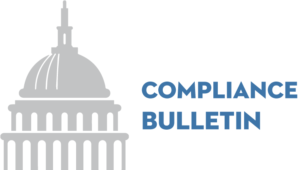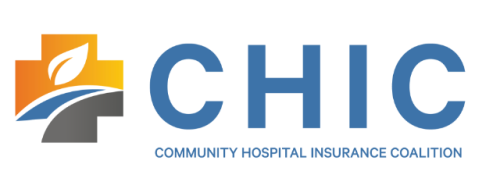Contents
Supreme Court Hears Contraceptive Coverage Case
Compliance Bulletin: FMLA Notices
Phase 2 of HIPAA Audit Program
Supreme Court Hears Contraceptive Coverage Case

On March 23, 2016, the Supreme Court heard oral arguments in Zubik v. Burwell, a group of cases in which religious nonprofits are challenging a government-designed workaround to the Affordable Care Act (ACA) requirement that employers cover birth control for their employees.
As a result of the oral arguments, the Supreme Court ordered the parties to file supplemental briefs for the Supreme Court to review. The supplemental briefs are supposed to address whether and how contraceptive coverage may be obtained by employees through their insurance companies in a way that does not require any involvement of the employers.
The Supreme Court’s order is in response to the religious organizations’ argument that the contraceptive coverage mandate violates the Religious Freedom Restoration Act (RFRA). The argument is based on the organizations’ position that the accommodations approach requires them to facilitate providing contraceptive coverage, which violates their beliefs.
As a possible solution, the Supreme Court suggested that the nonprofits could tell their insurers that they don’t want their plans to include contraception coverage when they first contract with them. The insurers would then directly notify the nonprofits’ employees that they could obtain free contraception coverage through the insurer, even though the employers do not wish to offer it in their plans.
The Supreme Court hopes to receive additional suggestions from the parties through the supplemental briefs.
It is not a standard practice for the Supreme Court to ask for supplemental briefs after hearing oral arguments. This request could indicate concern that a decision now would result in a 4-4 split. A split vote would defer the law to the states, which could lead to inconsistency and confusion.
The briefs are due on or before April 12, 2016, and responses to the briefs by opposing parties are due on or before April 20, 2016.
Every employer covered by the Family and Medical Leave Act (FMLA) must display an informative general notice about the FMLA. Employers may use the Department of Labor’s (DOL) model FMLA poster to satisfy this notice requirement. Employers may also create their own poster, as long as the poster includes the information contained in the DOL’s FMLA poster.
In April 2016, the DOL updated its model FMLA poster. The new model includes most of the same information as the prior model, which was released in February 2013, but is reorganized to make it easier to understand. Covered employers may start using the updated model notice or may continue to use the prior model.
HSA Eligible Expense Video
What types of expenses are HSA Elegible?
Phase 2 of HIPAA Audit Program
The Department of Health and Human Services (HHS) has launched the second phase of its HIPAA audit program, which focuses on compliance with HIPAA’s Privacy, Security and Breach Notification Rules.
This phase affects covered entities and business associates. If an audit reveals a serious compliance issue, HHS’ Office for Civil Rights (OCR) may investigate. The entities selected for an audit will have 10 business days to submit the requested information, and another 10 business days to respond to draft findings.
Covered entities and business associates should still prepare for a possible audit by reviewing their compliance with HIPAA’s Privacy, Security and Breach Notification Rules.
Communications from OCR will be sent via email and may be incorrectly classified as spam, so OCR expects covered entities and business associates to check their spam folders for emails from . An entity that does not respond to OCR may still be selected for an audit or be subject to a compliance review.

A tweak to the tax code could allow employers to pay back employees’ student debt. Two bills making their way through Congress (H.R. 1713 and H.R. 4363) could give companies tax incentives for helping employees repay their student loans.
Currently, if employees receive money from their employers to pay off student debt, it is considered taxable income. The bills aim to expand the tax code, allowing up to $5,250 per year to be treated as nontaxable income.
The average college graduate has $30,000 in debt. Since many young people prioritize paying off debt over saving for retirement, this could be a benefit that employers can use to attract talent. Although the bills are not expected to be passed during an election year, supporters are cautiously optimistic.




